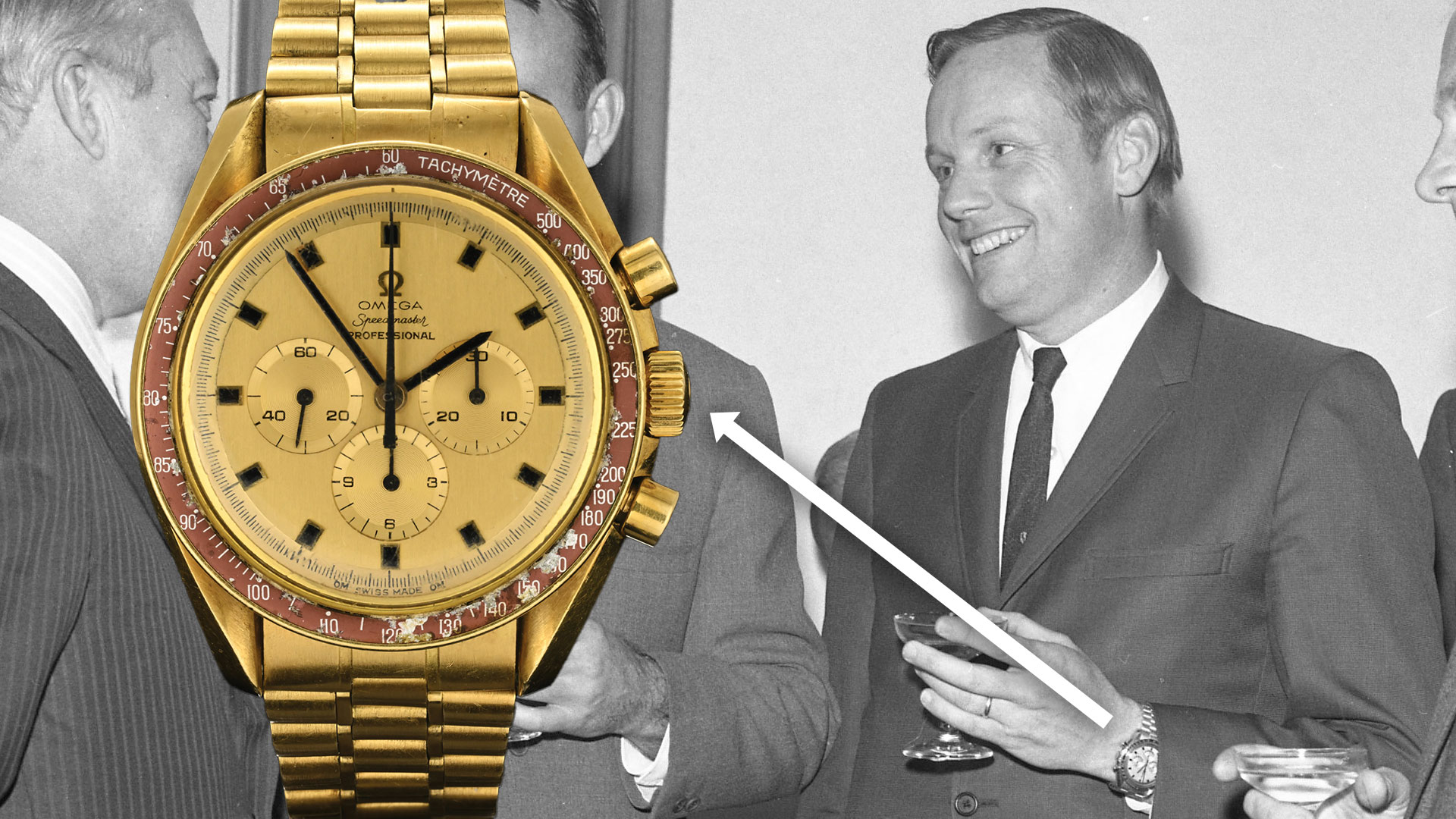New wristwatch bridges Apollo to Artemis with touch of real moon dust
A small canister filled with lunar meteorite dust is embedded at the 3 o'clock position on its dial.
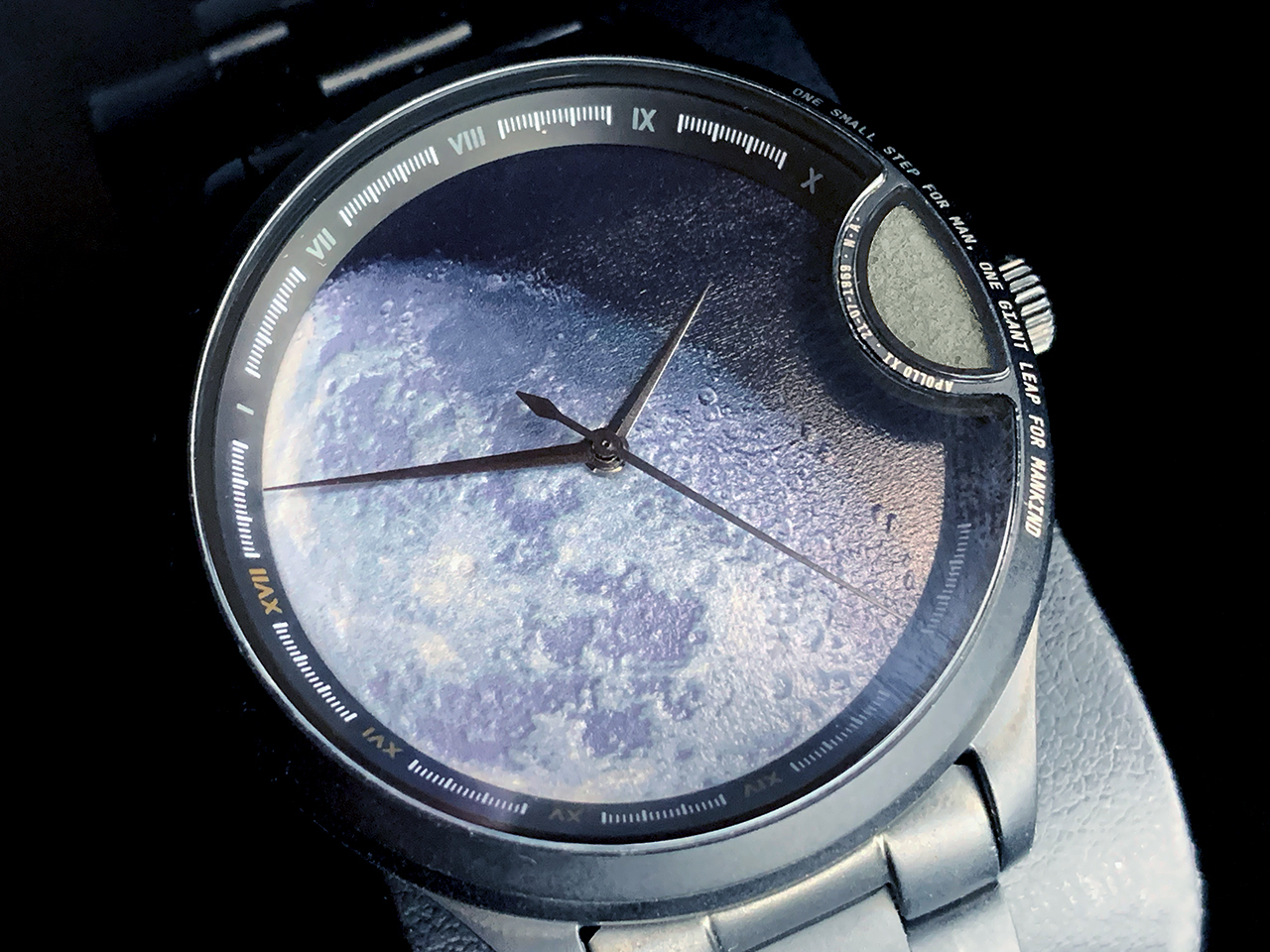
There is an allure to moon dust. Just like its unique adhesive properties, causing it to stick to everything it touches, it tends to draw the attention of everyone who sees it, regardless their walk of life.
It is appropriate then that Col&MacArthur named its moon dust-infused timepiece the LUNAR1,622.
"It's the gravity on the moon," said Sebastien Colen, founder and CEO of the Belgium-based watch company, referring to the numerical designation of their new release and the gravitational pull of the moon as compared to Earth. "Every time we release a new collection, we want to make that link to the gravity of the body."
Launched on the Kickstarter crowdfunding platform on Wednesday (Oct. 4), the first day of World Space Week, Col&McArthur is offering several configurations of the LUNAR1,622, ranging from a pledge of $399 for a version without moon dust to $599 and $999 for models with moon dust and either Japanese Miyota or Swiss Sellita watch movements and steel or titanium bodies.
Looking at the moon dust-imbued LUNAR1,622, your eye is immediately attracted to the 3 o'clock position where a chamber on the face holds the dust from a lunar meteorite found in Northwest Africa in 2017. Secured within the chamber, the light gray material looks like a miniature swath of the lunar surface.
Related: The Apollo Program: How NASA sent astronauts to the moon
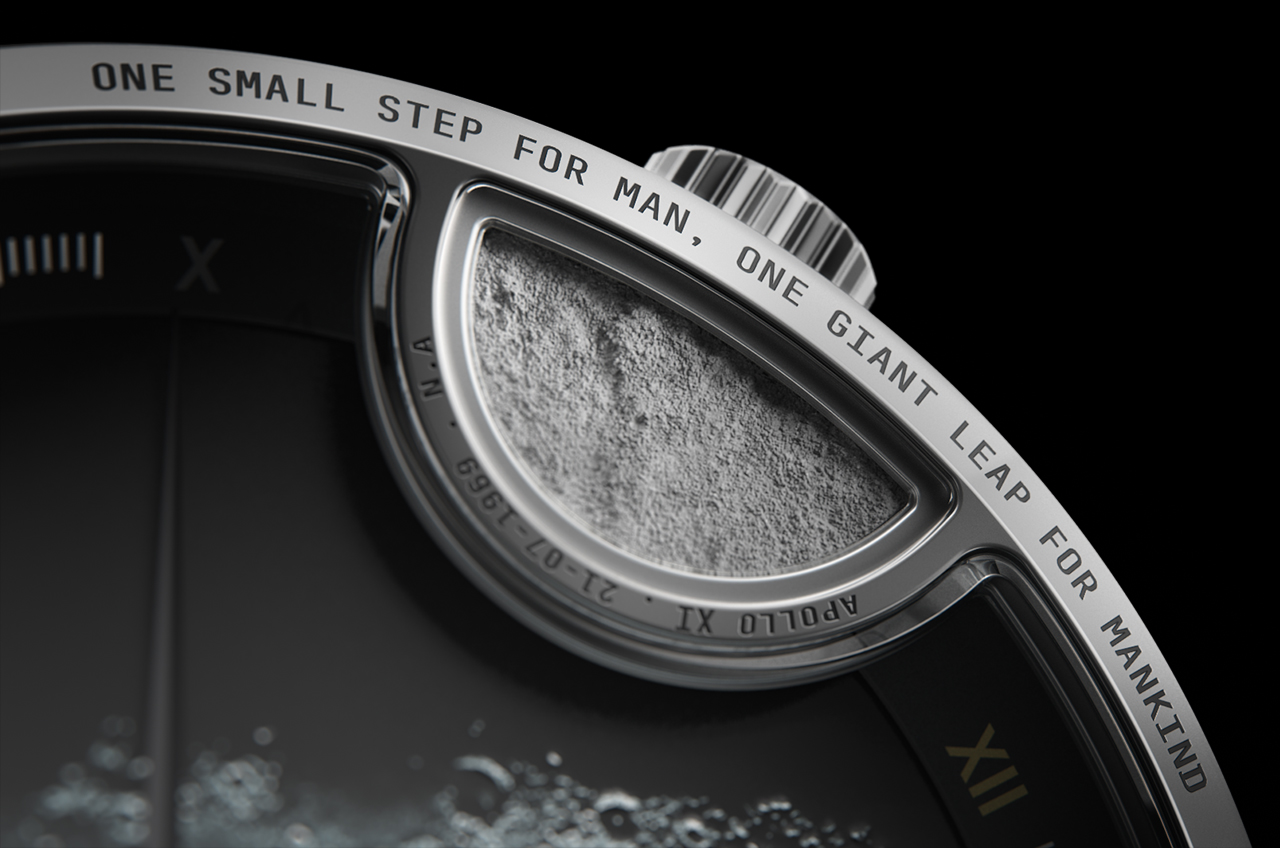
"We wanted to [have] the moon dust loose in the watch, but it is so thin that it was coming up with an electrostatic field and sticking to the glass. So, once you got the watch and shook it a bit, it was like a painting and you would no long be able to see past the monochrome coating," Colen told collectSPACE.com. "So we decided to stick the dust to a platform to improve the rendering."
The lunar dust is certified as authentic by MSG Meteorites, a British company that is licensed by the International Meteoritic Collectors Association (IMCA). A lunar meteorite is a piece of the moon that through natural processes broke off and then fell to Earth. They are identified in part by comparing their geological properties to the moon rocks brought back by the Apollo astronauts and later by robotic sample return missions.
Even without the moon dust, Col&MacArthur's LUNAR1,622 has been designed to pay tribute to the Apollo missions of the past and Artemis lunar landings of the near future. On the standard LUNAR1,622 model, which omits the moon dust, an image of an Apollo moon boot print takes the lunar material's place.
The dial on all of the models displays a 3D rendering of the moon, emphasizing its seas ("mares") and crater-pocked topography.
"Along the edge of the [moon dust] chamber, we have the dates when Apollo 11 landed on the moon with the initials 'N' and 'A' for Neil Armstrong," Colen said, adding that Armstrong's famous first words spoken on the surface of the moon — 'One small step for man, one giant leap for mankind' — are inscribed opposite the chamber on the bezel.
"The other thing is, around the dial we have the Apollo mission [roman numerical designations] that either went into orbit around the moon or landed on the moon. The missions that went into orbit are printed in white and those that landed appear in gold on the index of the dial," said Colen.
Related: Lunar legacy: 45 Apollo moon mission photos
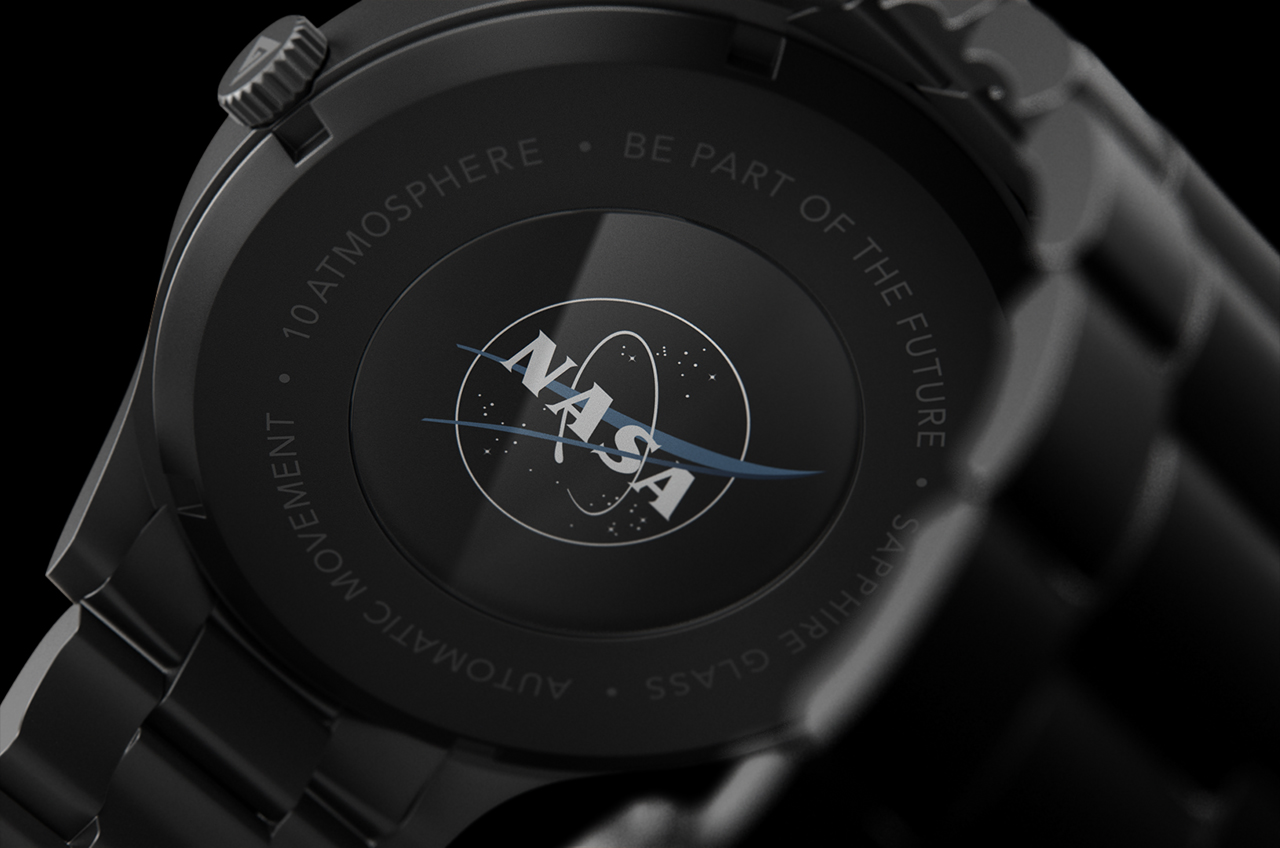
The case back displays NASA's logo in white and blue.
"For that, we had to get the approval of NASA," Colen told collectSPACE. "We had to submit the design to NASA, which has very specific guidelines for its logo's use. We finally got the approval in June after it took maybe six months to get. It was not that easy."
Hidden under the space agency's logo (within the watch) is an NFC (Near Field Communication) chip that enables the LUNAR1,622 to interact with smartphones (or other NFC readers) to display info about the owner and the source meteorite for the lunar dust. (The NFC technology is initially only available with the premium model, but will be unlocked for all models if the Kickstarter campaign reaches $200,000 in the first 24 hours.)
Colen is hoping the LUNAR1,622 draws similar, if not more, interest than their first watch in the Col&McArthur Interstellar series. In May 2022, the RED 3,721 debuted on Kickstarter featuring a Mars theme and dust from a Martian meteorite. That campaign raised more than $390,000 from nearly 600 backers.
"I would say the mission for Col&MacArthur is commemorating the history while having a bridge to a better future, so I think that the moon here on the LUNAR1,622 is commemorating the past, but also represents what it brings to the future," said Colen. "It's been 55 years since we've been on the moon, and it's only just now that we're thinking about going again. We think the LUNAR1,622 is a nice way to connect our past to the future."
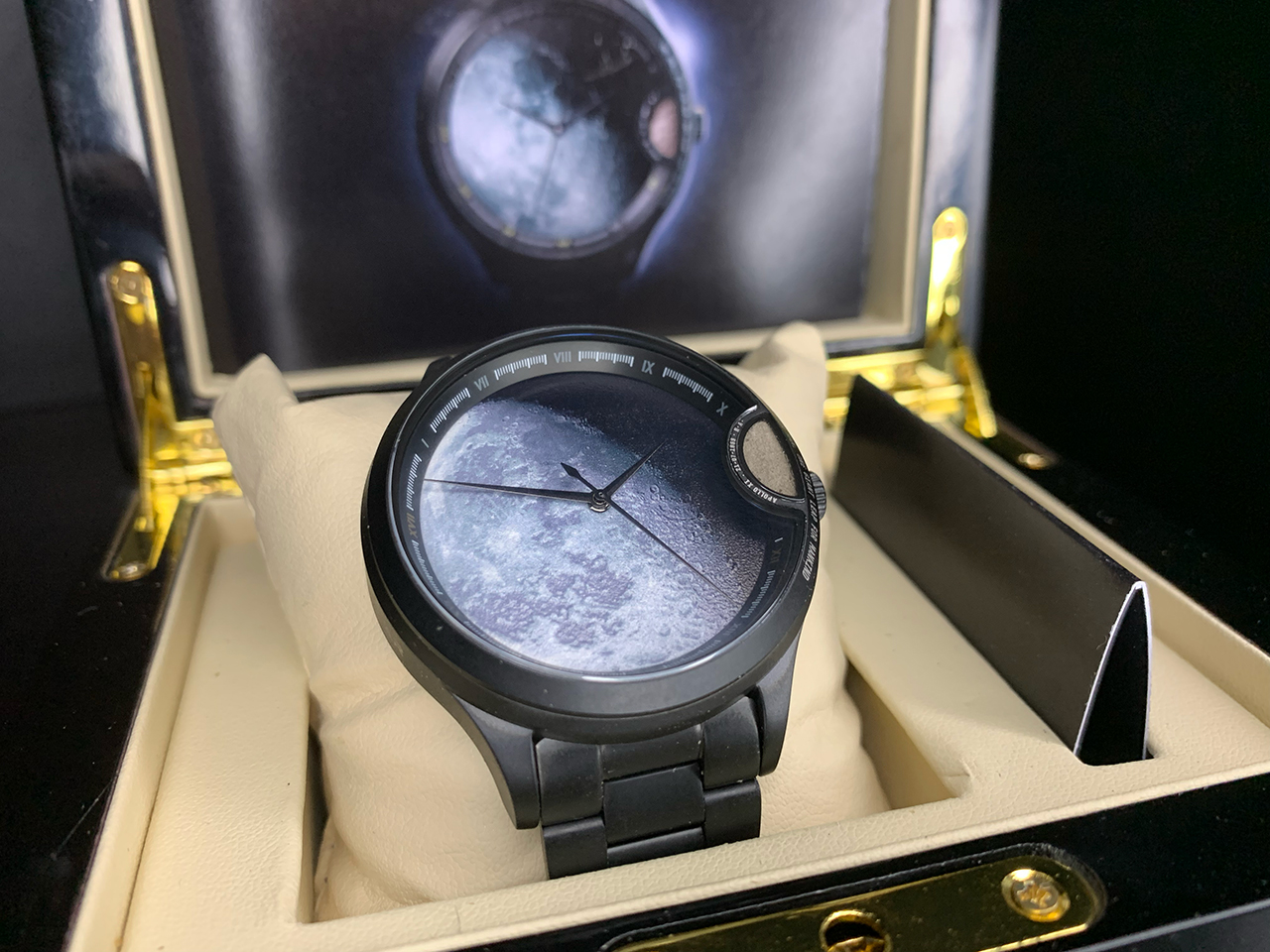
Follow collectSPACE.com on Facebook and on Twitter at @collectSPACE. Copyright 2023 collectSPACE.com. All rights reserved.
Get the Space.com Newsletter
Breaking space news, the latest updates on rocket launches, skywatching events and more!
Join our Space Forums to keep talking space on the latest missions, night sky and more! And if you have a news tip, correction or comment, let us know at: community@space.com.

Robert Pearlman is a space historian, journalist and the founder and editor of collectSPACE.com, a daily news publication and community devoted to space history with a particular focus on how and where space exploration intersects with pop culture. Pearlman is also a contributing writer for Space.com and co-author of "Space Stations: The Art, Science, and Reality of Working in Space” published by Smithsonian Books in 2018.In 2009, he was inducted into the U.S. Space Camp Hall of Fame in Huntsville, Alabama. In 2021, he was honored by the American Astronautical Society with the Ordway Award for Sustained Excellence in Spaceflight History. In 2023, the National Space Club Florida Committee recognized Pearlman with the Kolcum News and Communications Award for excellence in telling the space story along the Space Coast and throughout the world.

